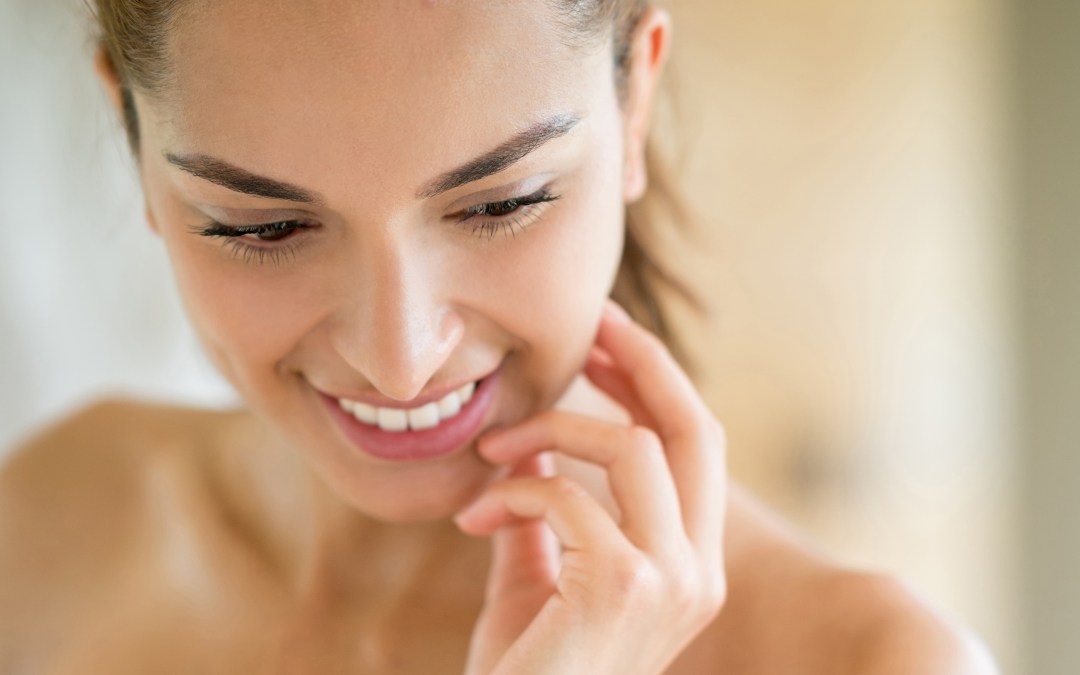What is your skin saying?
Holistic facialist, Abigail James, has spent two decades learning about our skin – but, more specifically, what is going on beneath its surface. Here, she uncovers the link between our bodies, minds and facial health

‘Our faces reveal many emotions. You can look at someone and immediately see whether they’re sad, stressed, angry or happy, and it’s the muscles under the skin which form these expressions,’ says Abigail James in her book Love Your Skin (Kyle Books, £20). But, it’s not just muscles that tell the story.
‘According to Traditional Chinese Medicine (TCM), specific areas of the face relate to different internal organs and systems. This means that skin concerns on areas of the face – including breakouts, redness, dry patches, swelling and deep wrinkles – may be caused by underlying issues, or imbalances connected with organs and systems inside the body. The benefits of TCM have been well-documented over thousands of years. It’s not as simple as a breakout in one area indicating a specific problem with an organ,’ adds James.
‘The lower cheeks relate to the lung meridian, but if you suffer from recurring spots there, it doesn’t always mean you have an issue with your respiratory system. The lung meridian has an emotional association, and the breakouts may be caused by grief, anxiety, lack of self-esteem or depleted energy levels. If home products don’t work, you may find TCM helps you to locate the root cause of your problem. It’s about restoring balance and promoting the free flow of chi, the energy life force that travels through channels known as meridians,’ she says.
‘Feelings are part of being human, and stress affects our skin. In TCM, balancing our emotions is considered as important as balancing our diet and lifestyle. According to TCM, if you break out in the same area, or deeper wrinkles appear in a specific area, the cause may be an emotional imbalance,’ says James.
How to read your facial flare-ups:
Lungs
Aside from obvious respiratory problems reflected in this area, flare-ups could relate to feelings of grief, stress and sadness. You may have a compromised immune system, and could suffer from skin issues, like eczema, and excessive sweating due to physical imbalances.
What you can do to help:
Boost your immunity with supplements, such as Wild Nutrition and Unbeelievable Health, says Psychologies Wellness Director, Eminé Rushton.
Liver
You may be feeling angry and irritable, and could suffer with irregular periods, PMS and constipation. This could be an indication of too much fatty food, alcohol and dairy in your diet.
What you can do to help:
Eat more greens, take milk thistle, drink nettle and fennel teas, plus plenty of water.
Heart
The heart is all about joy; any emotion associated with a lack of happiness and emotional stress can show up as redness in this area. It could also be a sign of too much red meat in your diet.
What you can do to help:
See friends; laugh, dance, sing. Cut back on red meat and increase your omega-3 intake, which is best when it comes from a wild fish source, like Bare Biology, says Rushton.
Stomach/spleen/pancreas
Being overworked and worried could cause redness in this zone. You may have irritable bowel syndrome (IBS), constipation and renal fatigue. Puffiness could signal poor digestion or allergies.
What you can do to help:
Up your fibre intake and drink more water. Reassess your work-life balance. Increase self-care rituals, such as yoga and walking in nature.
Kidneys
You may feel fear and isolation. You could suffer from polycystic ovary syndrome (PCOS) or urinary issues. Problems relating to the kidneys may result in puffiness and water retention, exacerbated by lack of sleep and too much caffeine, sugar and salt.
What you can do to help:
Drink plenty of water, and support your lymphatic system with regular Epsom salt baths and body brushing.
Gallbladder
Emotionally, you’re indecisive and lack courage. You may be suffering from liver complaints, which could signal a diet high in processed foods.
What you can do to help:
Take milk thistle supplements and cut down on bad fats. Eat ginger and beetroot, increase oily fish intake and add dandelion leaves to salad.
Colon
You may experience feelings of worry, and spots and blackheads in this area could be an indication of a sluggish digestion.
What you can do to help:
Cut out red meat, eat more pears, broccoli and lentils. Flaxseed and flaxseed tea, along with plenty of water and exercise, should keep the gut happy.
Small intestine and bladder (forehead)
You’re feeling emotionally stuck and self-critical. If there’s an internal food allergy, there are often small, under-the-skin pimples; a sign of too much sugar, fat and water in the diet.
What you can do to help:
Cut out processed foods, drink more water and meditate, to learn to let go.
Ovaries and hormonal system (chin and jaw)
This zone is connected to the hormones, with the area linked to the ovaries on either side of the mouth, on the chin. You may feel insecure, stressed or unloved. White spots on the chin, or redness, can be a sign of too much sugar and gut candida. Spots to the side of the chin can also relate to the colon.
What you can do to help:
Get some fresh air, meditate and say a positive daily mantra about self-love and worth. For gut candida, cut out sugars for at least six weeks, take probiotics, and eat kefir, kombucha and sauerkraut.
Adapted from ‘Love Your Skin’ by Abigail James.
Photograph: iStock









